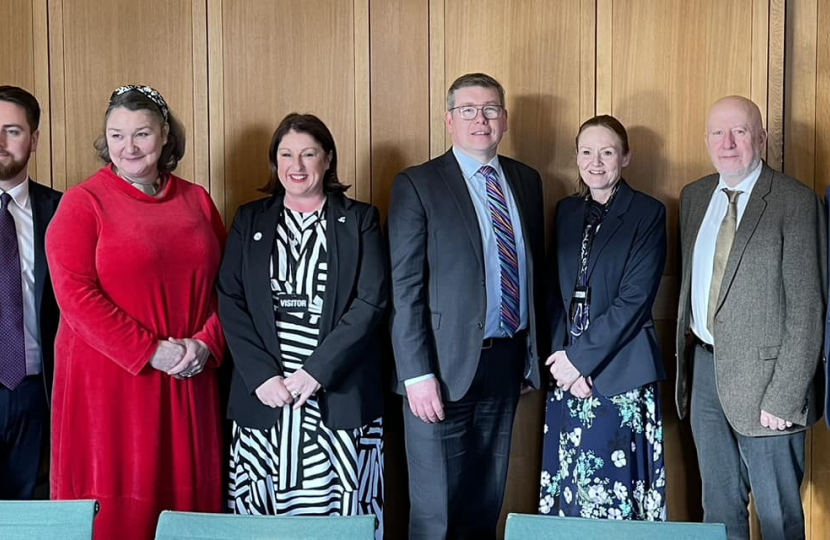
This week (31.01.23), Peter Gibson MP brought together MPs from across the Tees Valley and CEOs of Tees Valley Hospices to discuss the provision of palliative care in the Tees Valley following recent changes made in the Health and Care Act, which require the NHS to make provision for these services.
Mr Gibson welcomed the Chief Executives of St Teresa’s Hospice, Teesside Hospice, Alice House Hospice and Butterwick Hospice Care. All Tees Valley MPs were involved in the meeting, with Mr Gibson being joined by Jill Mortimer MP for Hartlepool, Jacob Young MP for Redcar, Paul Howell MP for Sedgefield, Andy McDonald MP for Middlesborough, as well as representatives from the Offices of Simon Clarke MP for Middlesbrough South and East Cleveland, Matt Vickers MP for Stockton South and Alex Cunningham MP for Stockton North.
Representatives of the Hospices present outlined their concerns that they face a financial cliff edge, with funding through charity becoming increasingly difficult. The changes made in the Health and Care Act are an important step to giving Hospices funding security, however, they are yet to receive clarity on how local NHS commissioners plan to fund hospice and palliative care.
Everyone present at the meeting agreed on the importance of supporting the hospice sector in the Tees Valley and the huge benefits they provide to the local community. Working in a cross party manner, all present agreed to continue working to support the hospice sector and each will provide further updates on this important matter to their constituents as work continues.
Speaking about the meeting Mr Gibson said, “Supporting our hospice sector is hugely important, they provide an invaluable benefit to our community and these organisations mean so much to me and to my constituents. This is not a party-political issue, and I was delighted that all Tees Valley MPs chose to play a part in this meeting. We will continue working together on this important to ensure all of the Tees Valley has access to the palliative care everyone deserves.”
David Smith, Chief Executive of Teesside Hospice in Middlesbrough and St Teresa’s Hospice in Darlington said, “Good quality, holistic hospice care makes a tremendous difference to individuals and whole families during some of the most difficult and traumatic times imaginable. Despite the enduring and generous support of our communities, our charities are now unable to meet the ever rising costs of the specialist hospice care. With much of our work being done on behalf of and in partnership with the NHS, we urgently need our local NHS commissioners to follow their own national funding guidance before it’s too late and hospice services are forced to reduce or close. We hope the unified and robust support from all of the Tees Valley MPs will raise awareness of the precarious position we are in and focus minds on finding a solution before it’s too late.”
Sandra Britten and Nicola Haggan, the Chief Executives of Alice House Hospice in Hartlepool said that “Alice House Hospice faces its most challenging financial year in 2023-24 as soaring energy bills and the cost of living crisis begin to impact on our patient care services. We are working in collaboration with other local Hospices and with the support of the Tees Valley MPs; these discussions are essential in securing the financial sustainability and ongoing provision of Hospice services in our region.”
Edward Gorringe, Chief Executive of Butterwick Hospice in Stockton said, “For many years, hospices have been measured against similar standards to those applied to acute hospital wards without being supported with the funding to operate at the same level. During our meeting with our local Tees Valley MP’s, we were able to share our fundamental issue; that we as healthcare providers, cannot continue to fund high-quality compassionate end of life care primarily through voluntary fundraising. The support of our local communities is vital and will always be essential to help us provide the personalised services that are so important to our patients and their families. Nevertheless, in order to meet the undeniable need for quality end of life care, hospices must have their core services fully funded.”

